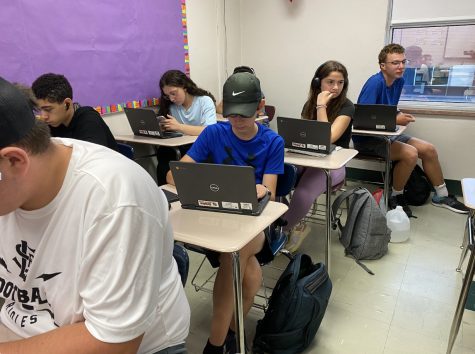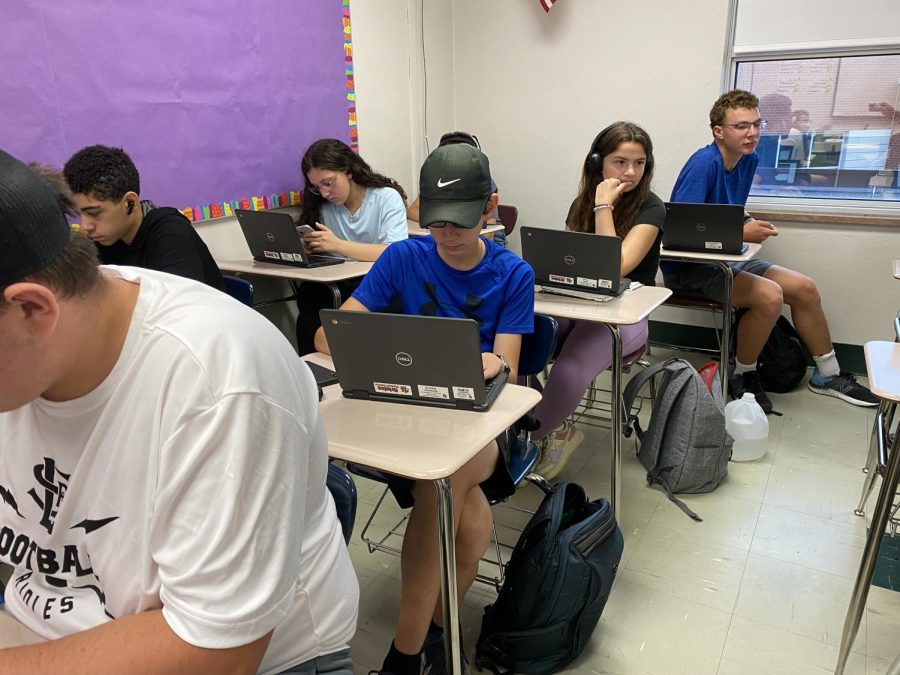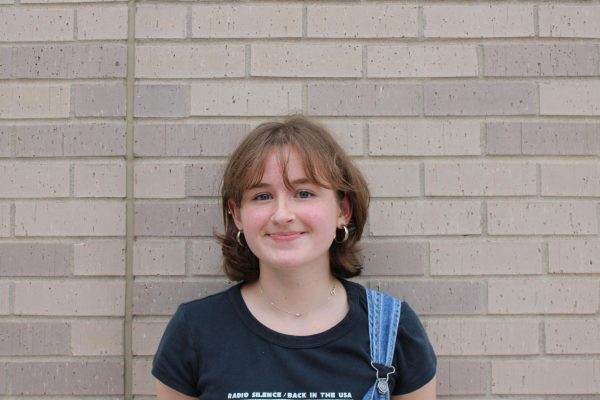Hebrew class learns through Zoom
Their progress, plans, and changes for the 2022-2023 school year
Students listen in on their online Hebrew class. The class is fully remote, requiring students to connect to Zoom to follow their instructions for the day.
October 14, 2022

This year at Park, Hebrew students are being taught through Zoom. Hebrew class is held for only one period, during first hour, and the class size is just under thirty students.
The school district decided to hire Dafna Kohl, a Georgian Hebrew teacher familiarized with online teaching, to lead the class over Zoom. Kohl says that while online teaching can be a challenge, it also leaves room for growth. According to Kohl,
“Teaching online could be challenging for me and the students, but it is also an opportunity to introduce technology in the classroom and use different kinds of materials,” Kohl said. “In the beginning of the pandemic, my school switched to full time online learning. It was a different experience but we all learned a lot.”
Some of Kohl’s students agree — junior Eliyah Sharon studying Hebrew at Park, said online teaching has been helpful for her.
“I like my teacher being online, I think it’s easier and I can stay more organized,” Sharon said.
Sharon may not find issues with remote teaching, but other students are struggling. Sophomore Issac Joseph said online teaching makes the class harder.
“It’s really difficult as a class. It’s hard to talk to the teacher and ask questions, and that’s how you learn a language,” Joseph said.
Kohl is trying to combat this by giving students individual attention and attempting to learn from the struggles online teaching presents. She said she believes she can still be an effective teacher, even under difficult circumstances.
“During the lesson or study hall I like to meet one-on-one with the students to learn about them and share my own experience — I believe I can be a good teacher, I hope I will be able to motivate my students to love the Hebrew language through my connection to the language and culture,” Kohl said.
Kohl’s dream for the class is shared by both Sharon and Joseph — the students said they are there to learn, and as Joseph pointed out, asking questions and interacting naturally with a teacher is a necessary part of doing so. Sharon said she has a desire for a more communicative, hands-on class.
“I would like to see a more interactive classroom, like us working with each other and the teacher more. It feels bare,” Sharon said.
Joseph laments about the school district’s negligence for the student’s learning, but understands the situation that caused it.
“I believe (the school) cares a decent amount about the class, but there’s not a lot of kids in it and it’s only one period. I get why they don’t want to hire a teacher to come in for only that. Still, they could give a little more attention to us,” Joseph said.
Sharon said she agrees, concurring that the size of the class is a main reason for the lack of attention to the department.
“(The class) doesn’t get enough attention compared to other language classes, mainly because of how small it is. We get enough attention to learn, but they could do more,” Sharon said.
According to Kohl, the issue the class faces starts with her limited ability to teach through Zoom. For her, a clear solution would be for the school to accommodate her so she’s better able to do so — but Kohl maintains that the administration has been very helpful to her.
“I really appreciate all the support that I get from the school, including other teachers and the administration. As a new teacher in the school I have a lot of questions, but I always feel welcomed to ask for help,” Kohl said.
In order to help the students, we have to let them tell us how, according to Joseph. Joseph offers a proposal: hiring a part time in-person teacher to pick up the slack left by Kohl’s material absence. He explains the value he thinks this would add to the class.
“If (the school) could get a teacher that comes at least once a week, just to help us out and answer questions, that would really help,” Joseph said.
This proposal offers a relatively doable solution to the issues the Hebrew students are facing, someone to answer questions and provide one-on-one support to the students, according to Joseph. But in the end, the decision to hire an extra teacher is up to the school district. In the meantime, this leaves the students to help themselves, and Joseph says that doesn’t leave them in a good position.
“I don’t think there’s much the students can even do — it’s just a difficult situation all around. It’s not the teacher’s fault, but it’s not ours either,” Joseph said.
Sharon is more optimistic. She said she believes the students are capable of working together and helping one another. As the school year continues, the levity of the student’s needs will become clearer, but for now, Sharon said they need to lean on each other to bridge the geographical gap between them and Kohl.
“It’s a class of three grades, so the students can help each other out. If someone doesn’t know a word or something, another student can help them. We don’t always need a teacher for that,” Sharon said.




